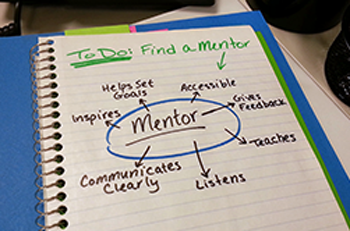The success of a graduate student’s career could rest on this. This is probably the single most important decision of your graduate career. If you’re lucky, your graduate advisor will become your mentor, confidante, and eventually a good friend.
Keeping the following points in mind will help grad students make a more informed decision:
Research Topic: Let’s face it; it will help if you like what you will do for the next 5 years of your life. However, it will also help if your research is on a ‘hot topic’ with potential for being funded. During grad school, you will build marketable skills that will help in future job endeavors both in industry and academia. Feel free to ask what your project would be if you joined the lab. Don’t be afraid to ask about the future direction of the lab, and request to read grant applications. Ideally what you pick should be a happy mix of what excites you and what will help you procure a job.
Funding: A well-funded lab is a more secure place for sure. You know that the funding will likely not run out in the middle of your project. Moreover, you could focus on your research and not spend your time teaching to earn a paycheck. However, keep in mind that a less funded lab could be conducting research that is truly exciting. Being closely involved in the grant writing experience is a great learning opportunity and it’s rewarding if your data is the reason a grant gets funded.
Good Scientist: Do a PubMed search. Read up on the published research. It is a good criterion for you to predict the quality of your own future publications.
Good Mentor: A good mentor will spend time with their students, discuss science, help design good experiments, and give input on how to interpret and analyze data. A good mentor will also train you to write research papers and grants, how to review papers for journals, and give career guidance. Former and current students would be a good resource to get this information. A lab full of post-docs may not be a lab where such time is invested in graduate students.
Track Record of the Other Students: This can be quite telling. Do the current students appear optimistic and enthusiastic? How successful are the former students and what career paths did they follow? How much did they publish while they were students?
Tenured or Not: At one extreme are the eminent senior academics and at the other extreme are the junior academics. Obviously the more eminent your advisor, the less involved they will be. If you are not motivated, this could be a recipe for procrastination. However, this type of lab will have plenty of funding and you could certainly form good professional networks. A junior academic would spend more time mentoring you. Money might be short, and your data could be critical in procuring the funding for the lab.
Personal Chemistry: Last but not least you will be working in close proximity to this person for many years. Do you need somebody easygoing or you can work more effectively with someone who drives you hard? Are your feelings easily hurt or you can shrug off tactless comments? It does help if you get along with your advisor. A good relationship remains strong even after you graduate. I met my graduate advisor recently at a conference and it was absolutely wonderful to spend time chatting with him.

